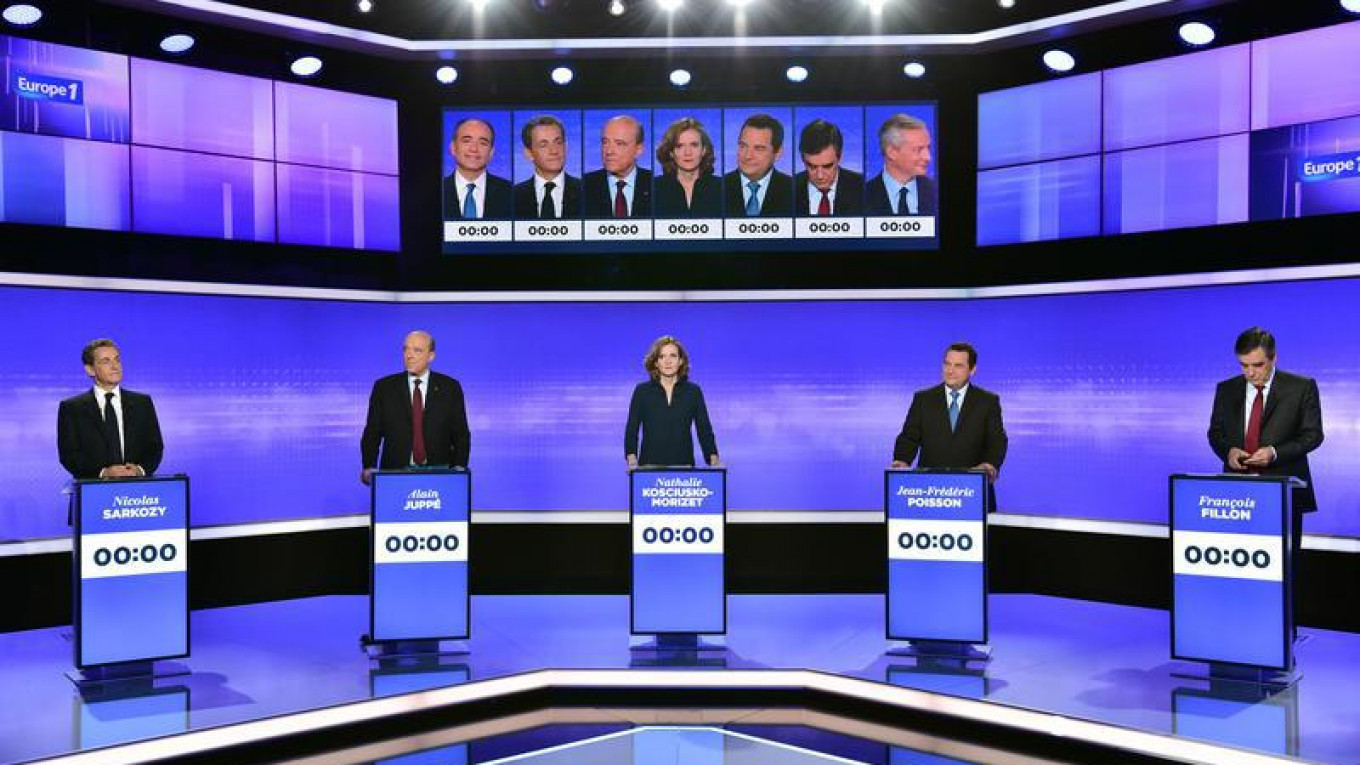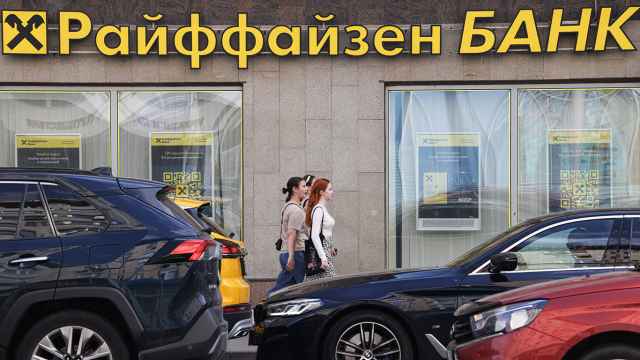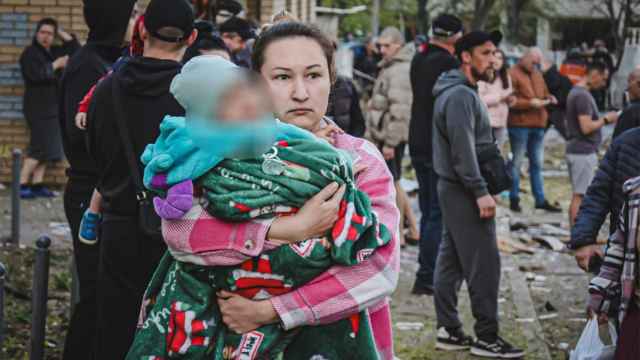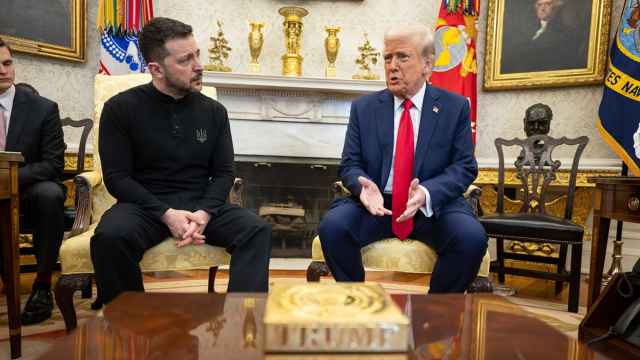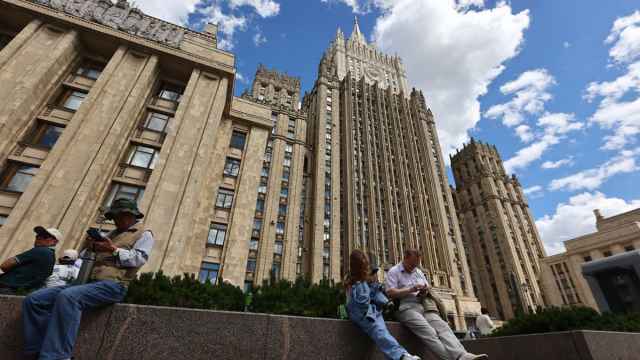When Russian President Vladimir Putin unexpectedly canceled his trip to Paris last month, it looked as Franco-Russian relations had reached new lows. President Francois Hollande spoke of Russian war crimes; in Syria and condemned the Kremlin's policy in Aleppo.
Yet as Francois Fillon may win the French Republican primaries, relations between Paris and Moscow could be set to thaw in 2017. Like many Western elections this year, primaries for the French Republican party ahead of next year's presidential vote have provided political upset and uncertainty. The winner was man that few considered a serious contender: Francois Fillon. After managing to knock his old boss, former French president Nicolas Sarkozy, out of the race, Fillon will face a final run-off with the party's other presidential hopeful, Alain Juppe, this Sunday.
If Fillon wins the party leadership contest, he will face France's far right candidate Marine Le Pen in the spring 2017 election. The prospect is a win-win situation for Vladimir Putin, with both Fillon and Le Pen previously proving themselves to be friendly toward the Kremlin.
Russia's pro-Kremlin media has been rejoicing at the possibility of Francois Fillon taking over the Elysee. Moscow's propagandist-in-chief Dmitry Kiselyov lauded Fillon a “friend of Russia” In his weekly show, while Russian newspapers are rushing out headlines to boast that Paris may soon change its policy towards Moscow.
A man with personal ties to Putin
Francois Fillon is on first-name terms with Putin. Both men were Prime Ministers during the Sarkozy and Medvedev presidencies, when Franco-Russian relations flourished. Fillon has stressed that Russia is a “crucial partner” for France, and has promised to lift European sanctions imposed on Moscow following the 2014 Crimea annexation. Putin, meanwhile, has called Fillon “outstanding.”
During their debate on Thursday, Juppe even accused Fillon of receiving support from Moscow, saying he was "a little surprised" Putin had "chosen his candidate".
“Putin respects Fillon and, in Russia, respect goes a long way,” says Pavel Chinsky, director of Moscow’s Franco-Russian Chamber of Commerce.
Fillon represents the conservative branch of the French right – both socially and economically. He is an open admirer of Margaret Thatcher and has been accused of being anti-gay and anti-abortion (he voted against the decriminalisation of homosexuality in 1982 and more recently against adoption rights for same-sex couples). He also describes himself as a practising Catholic.
His social conservatism has been welcomed by Russia's ruling elite and the country’s media. Yet the Kremlin is far more pleased with Fillon’s foreign policy rhetoric – namely in the Middle East and Eastern Europe.
Praise for Moscow’s Syria policy
Fillon has previously had some warm words for Moscow's role in Syria, claiming that Syria's Bashar al-Assad could form part of a solution to the country’s ongoing civil war. He has also stressed that defeating Islamic fundamentalism should take priority over forcing Assad to leave office. When Putin cancelled his Paris visit, Fillon denounced Hollande's Middle East strategy. “Islamic totalitarianism,” he said, means that “we needs lots of allies, including Russia.”
“On Syria, Fillon is very similar to America's Michael Flynn [president-elect Donald Trump's incoming national security adviser],” says Chinsky. Flynn, who once attended a Moscow gala alongside Putin, has previously claimed that allegations of chemical attacks by the Syrian government were a “false flag.”
Russian political analyst Mikhail Troitskiy warns that the Syria rhetoric of politicians such as Donald Trump and Francois Fillon do not indicate a real chance for cooperation in Syria. “Criticism might subside, but uniting forces is doubtful,” he says. Whoever has governed France, he says, has historically sided with Sunni Muslims- and is likely to continue supporting moderate Syrian rebels.
Abandoning Kiev?
Fillon has also expressed support for Moscow in the ongoing Ukrainian conflict, which he claims was “provoked” by the West. “Under Fillon, France would join an alliance of EU member states who support lifting Western sanctions on Russia,” says French analyst Nicolas Tenzer.
Yet France's position on Ukraine is likely to depend on Germany's Angela Merkel's position come spring next year. Fillon could follow a similar path to Francois Hollande, who have never been a vocal enthusiast for Western sanctions, but has remained aligned with Brussels nonetheless. EU consensus on sanctions could also strengthen if the United States under Donald Trump becomes more detached from Europe, Troitskiy says.
The Le Pen factor
The elephant in the room remains French far right candidate, Marine Le Pen. Fillon's conservatism may see him woo some of her supporters, but the Front National is painting his liberal economic policies as harmful to the average Frenchman.
Moscow's ties with the Le Pen are much stronger — and far more visible – than those with Fillon. Marine Le Pen's niece and rising political star Marion Le Pen traveled to Russia and met with United Russia officials earlier this month. The Front National has made no secret of its financial debts to Russia: Marine Le Pen has openly admitted to accepting Russian money to finance her campaign.
Yet which candidate would ultimately be the Kremlin's preferred choice? “If Russia really wants the EU to fall apart, then Le Pen is optimal,” says Troitskiy. But while the EU remains Russia’s largest trading partner, Moscow will still have to bear the consequences if the EU collapses politically and economically.
Putin has never met personally with Marin Le Pen, who has been held at bay at lower levels of Russian bureaucracy, says Vladimir Frolov, a political expert based in Moscow. "Fillon is not a marginal politician of the far right. He is part of the French and European establishment. He is much more effective in forwarding the Russian agenda within the EU then Le Pen would ever have been," says Frolov.
The prospect of Francois Fillon reaching office still remains a distant possibility. Yet as his rival Alain Juppe struggles to persuade French voters that a vote for Fillon is a vote for the Kremlin, he is being increasingly compared to America's defeated Hillary Clinton. And with former-President Sarkozy now endorsing Fillon, Moscow can only look on with bated breath. "As the things stand now it is Christmas seven days a week for the Kremlin," Frolov says.
A Message from The Moscow Times:
Dear readers,
We are facing unprecedented challenges. Russia's Prosecutor General's Office has designated The Moscow Times as an "undesirable" organization, criminalizing our work and putting our staff at risk of prosecution. This follows our earlier unjust labeling as a "foreign agent."
These actions are direct attempts to silence independent journalism in Russia. The authorities claim our work "discredits the decisions of the Russian leadership." We see things differently: we strive to provide accurate, unbiased reporting on Russia.
We, the journalists of The Moscow Times, refuse to be silenced. But to continue our work, we need your help.
Your support, no matter how small, makes a world of difference. If you can, please support us monthly starting from just $2. It's quick to set up, and every contribution makes a significant impact.
By supporting The Moscow Times, you're defending open, independent journalism in the face of repression. Thank you for standing with us.
Remind me later.


